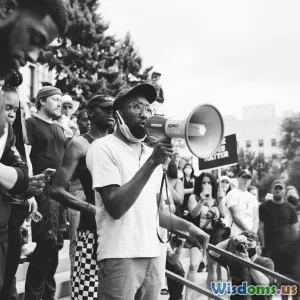
Why Do Artists Cancel Tours Health Risks Behind the Glamour
6 min read Discover the hidden health risks that prompt artists to cancel tours and the reality behind the glamorous facade of live performances. (0 Reviews)
Why Do Artists Cancel Tours? Health Risks Behind the Glamour
Touring is often romanticized as the pinnacle of a musician’s career—a spectacular journey filled with adoring fans, bright lights, and thrilling performances. Yet, behind this glamorous facade lies a complex reality that has seen many artists cancel tours abruptly. This article delves into the less-discussed health risks that compel artists to put their careers on hold and prioritize their well-being.
The Glitz and the Grim: Understanding the Glamour and Its Shadows
Concert tours are undoubtedly glamorous. They offer artists fame, fan interaction, and financial rewards. However, the grueling nature of tours, often spanning months with consecutive performances, travel demands, and little downtime, can take a severe toll. Such relentless schedules can lead to a host of health issues, both physical and psychological.
Mental Health Challenges on the Road
The Weight of Pressure and Expectations
Artists frequently face immense pressure to deliver flawless performances and maintain their public image. This constant scrutiny can provoke anxiety, depression, and even burnout. Pop star Selena Gomez, for example, halted her tours citing struggles with anxiety and depression, underscoring that mental health is a vital but often invisible factor behind tour cancellations.
Isolation Despite the Crowd
Despite performing in packed venues, many touring artists report feelings of loneliness based on the isolating nature of life on the road. Long periods away from family, friends, and routines can exacerbate mental health struggles. For instance, Adele canceled part of her "25" tour to focus on postpartum depression and emotional well-being.
Physical Health Strains Beyond the Stage
Exhaustion from Nonstop Travel
Touring demands exhaustive travel, often with multiple flights and long bus rides between cities or countries within tight timelines. This lifestyle increases vulnerability to illnesses as the immune system weakens. The flu, voice strain, and respiratory infections are common ailments among touring artists, often causing cancellations.
Injury and Vocal Strain
Singers risk vocal cord damage due to repetitive strain, resulting in the need for extended rest periods. Coldplay’s Chris Martin, for instance, postponed shows to prevent permanent vocal damage. Additionally, physical injuries from on-stage accidents or demanding choreography can lead to abrupt tour stoppages.
Lifestyle Factors: Sleep, Nutrition, and Substance Use
Touring disrupts regular sleep patterns. Sleep deprivation impairs cognitive function and physical health, magnifying risks of errors and accidents on stage. Nutrition is also challenging, with limited access to balanced meals on the road.
Moreover, the pressures of fame and constant travel can lead some artists toward unhealthy coping mechanisms, including substance use, which further jeopardizes their health and tour commitments.
Industry and Fan Expectations: The Double-Edged Sword
High demand from fans and record labels can push artists to tour intensively to meet commercial goals. This relentless pace often leaves little room for rest or recovery. Taylor Swift, at the peak of her career, has openly discussed the exhaustion tourists face and emphasized taking breaks to preserve health.
The Silver Lining: Promoting Health Awareness
Recent trends show increasing transparency among artists about their mental and physical health challenges. Demi Lovato, for instance, has used her platform to speak candidly about mental health, earning public support and helping destigmatize seeking help.
The entertainment industry is gradually shifting—health and wellness are becoming prioritized alongside commercial success, promoting safer touring environments.
Conclusion
Tour cancellations by artists are often seen as disappointing interruptions. However, behind these decisions typically lie urgent health considerations—physical injuries, mental health struggles, and lifestyle-related risks. Recognizing the health challenges artists face on tour encourages fans and industry players to be empathetic and supportive. In the end, protecting artist wellness ensures longevity in their careers and authentic, high-quality performance experiences that fans cherish.
Understanding the hidden toll beneath the glamorous tours enriches our appreciation for artists and underscores the importance of balancing ambition with well-being in the demanding entertainment world.
Rate the Post
User Reviews
Other posts in Health & Wellness
Popular Posts

















